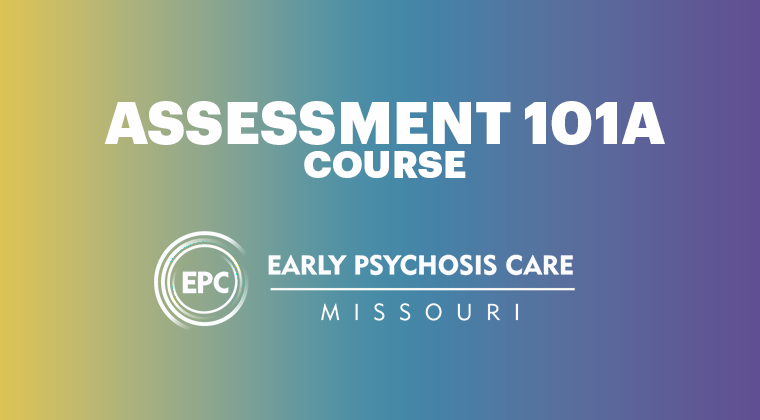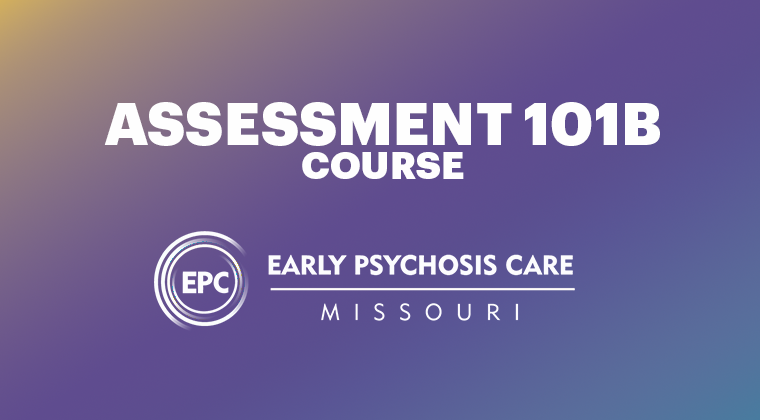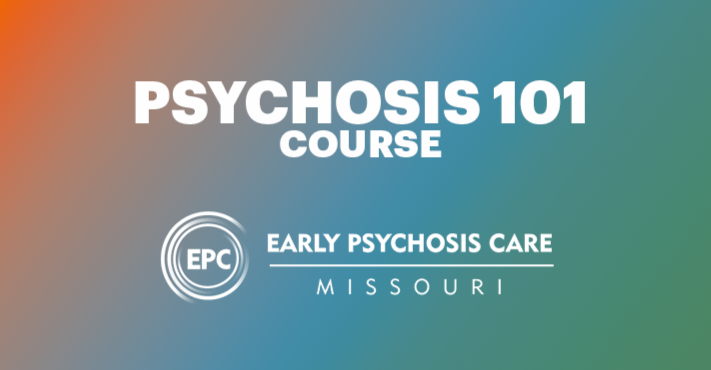Events Calendar



Assessment 101 Part A is a free 1-hour training. This training will focus first episode psychosis intake questions. Attendees will learn how to feel comfortable asking questions about psychosis and speaking to individuals who are reporting signs and symptoms of first episode psychosis.

Assessment 101 Part B is a free one-hour training. Building upon Assessment 101 Part A, attendees will learn about differentiating between clinical high-risk and psychosis symptoms. Individuals will be oriented to the use of screening, self-reporting, and structured and semi-structured clinical interviews to assist in diagnosis, treatment planning, and ongoing assessment of psychosis symptoms.

Psychosis 101 is a free virtual training held multiple times a year by the Missouri EPC Center. Topics include the importance of early intervention and treatment, symptoms, diagnosis, communication with families, the roles of culture and trauma, and education of referral sources.
